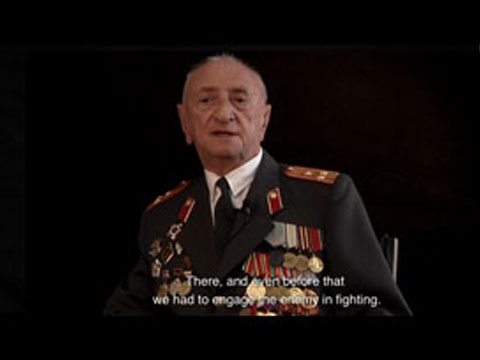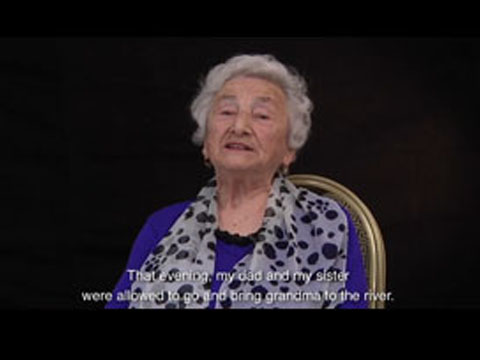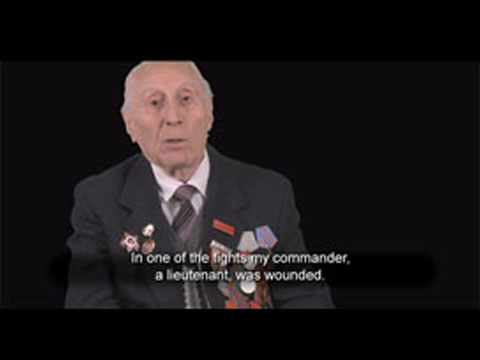
Yurii Iakren
Born March 3 1924 Saratov, Soviet Union
Interviewed In: Vancouver, British Columbia
Medals Awarded: Order of the Patriotic War (1st and 2nd Class) and Victory over Germany In The Great Patriotic War
“If somebody stroke a match to light a cigarette, his body wasn’t found”
Anti Air Craft Artillery and Communications Officer, Caucuses, Warsaw, Battle Of Berlin
Nikolai was drafted when turned 18 and served in two artillery divisions based in Ukraine. He was due to retire as a Junior Lieutenant when the war began in 1941. Instead, Nikolai was sent to officer school. After an accelerated graduation, he was placed in a detached rival division. Nikolai was with this unit during The Red Army’s initial retreat and subsequent advance: “I was sent to city Rostov-on-Don before the surrender. 265 detached rifle division was being formed there at the time. Stationary guns were shipped there. With those guns we started retreating from Rostov. The retreat was followed by an assault. We were moving in the direction of the Caucasus: Issalsk, Manych, Mineralnye Vody, Mozdok, Kavkazskaya railway station”.
Nikolai’s unit was under heavy fire while defending a railway hub near Caucasus:
“At first they threw down flare bombs that were slowly descending on silk parachute thus lighting up the area and making all the objects visible. After that an ace threw down a terrible mix that fell near an object. The burning object near a battery became a target for diving bombers. At the time we were saved thanks to flameless shells we had been given beforehand. That’s why the flares weren’t seen from a long distance. We managed to survive and help keep the railway hub”.
Later in the war Nikolai’s unit merged with the 2nd Belorussian Front. They drove Nazis out of Gomel and Warsaw. Nikolai also participated in The Battle Of Berlin.
“All that was left of buildings were the carcases. We crossed the river over a pontoon bridge to get to the city’s suburb. All that was left was a small house. We saw a lady who was crying standing near the house. She told us that everything she had was taken way, including a shoemaker’s stool. She was devastated, crying and greeting our soldiers. Afterwards we were sent to the river Vistula, Poland. 10 51 Same situation was in Warsaw. We participated in liberation of Warsaw and went on to the river Oder.Afterwards we were sent on to the approaches of Berlin. Everyone of us was eager to get to the Nazi’s den as soon as possible: Berlin, Reichstag, and the Brandenburg Gates. Everyone dreamed of leaving his signature on a Berlin wall”.
All of Nikolai’s immediate family died in the war. He worked as a physician in Ukraine before moving to Canada.

Born March 3 1924 Saratov, Soviet Union
Interviewed In: Vancouver, British Columbia
Medals Awarded: Order of the Patriotic War (1st and 2nd Class) and Victory over Germany In The Great Patriotic War

Born Zguritsa, Bessarabia (Moldova)
Interviewed In: Edmonton, Alberta
Medals Awarded: Victory over Germany In The Great Patriotic War

Born March 20th 1926 Rakitnoyeye, Ukraine
Interviewed In: Toronto, Ontario
Medals Awarded: Order of the Patriotic War (1st and 2nd Class), Medal for Battle Merit and Victory over Germany In The Great Patriotic War